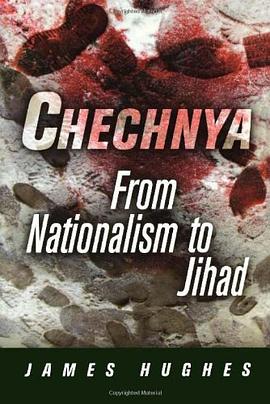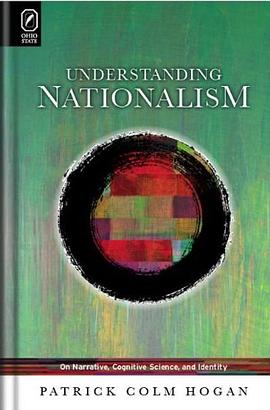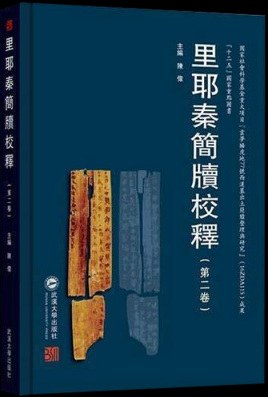

Chechnya From Nationalism to Jihad James Hughes "James Hughes has produced the most comprehensive, thoroughly documented, and up-to-date study of the Chechen conflict available. This sophisticated and subtle analysis places Chechnya in the context of broader debates about nationalism and ethnic politics, theories of empire and secession, and the propensity of new democracies to go to war."--Matthew Evangelista, Cornell University "Hughes offers a new way of thinking about ethnopolitical conflict by examining conflict dynamics as part of the causation chain in a conflict."--History: Reviews of New Books "Does the book have value for the military historian? Absolutely."--Journal of Military History "an excellent starting point for anyone looking for insight into how the radical Sunni Salafi movement both evolved and commandeered the struggle in Chechnya, which could also serve as an example as to how Al-Qaeda could hijack other nationalist struggles in the future."--International Affairs "An exemplary case study...Throughout, insights into the consequences of the collapse of the Soviet Union, the reconstitution of a federated Russia, and the leadership of Vladimir Putin abound...Highly recommended. "--Choice The sheer scale and brutality of the hostilities between Russia and Chechnya stand out as an exception in the mostly peaceful breakup of the Soviet Union. Chechnya: From Nationalism to Jihad provides a fascinating analysis of the transformation of secular nationalist resistance in a nominally Islamic society into a struggle that is its antithesis, jihad. Hughes locates Chechen nationalism within the wider movement for national self-determination that followed the collapse of the Soviet empire. When negotiations failed in the early 1990s, political violence was instrumentalized to consolidate opposing nationalist visions of state-building in Russia and Chechnya. The resistance in Chechnya also occurred in a regional context where Russian hegemony over the Caucasus, especially the resources of the Caspian basin, was in retreat, and in an international context of rising Islamic radicalism. Alongside Bosnia, Kashmir, and other conflicts, Chechnya became embedded in Osama Bin Laden's repertoire of jihadist rhetoric against the "West." It was not simply Russia's destruction of a nationalist option for Chechnya, or "Wahabbist" infiltration from without, that created the political space for Islamism. Rather, we must look also at how the conflict was fought. The lack of proportionality and discrimination in the use of violence, particularly by Russia, accelerated and intensified the Islamic radicalization and thereby transformed the nature of the conflict. James Hughes is Professor of Comparative Politics at the London School of Economics and Political Science. National and Ethnic Conflict in the 21st Century 2007 | 296 pages | 6 x 9 | 5 illus. ISBN 978-0-8122-2030-8 | Paper | $26.50s | GBP17.50 ISBN 978-0-8122-0231-1 | Ebook | $26.5s | GBP17.50 World Rights | Political Science Short copy: The conflict in Chechnya involves many of the most contentious issues in contemporary international politics. By providing us with a persuasive and challenging study, Hughes sets out the indispensable lessons for other conflicts involving the volatile combination of insurgency and counterinsurgency, most notably the wars in Iraq and Afghanistan.
具體描述
讀後感
評分
評分
評分
評分
用戶評價
蘇聯解體帶來legitimacy的睏惑成為車臣問題的第一層。實際上車臣在91年之前始終相當平靜。法律之後的問題是無論對於俄羅斯還是車臣,獨立都帶來身份認同上的睏境,這從葉利欽後期國內俄羅斯民族沙文主義開始盛行也能看齣。同時引發realpolitik的相關問題:杜達耶夫和葉利欽都試圖用民族問題作為總統與議會權力爭奪的籌碼,以緻無法有效協商。第一次戰爭仍非不可挽迴,但隨後問題惡化使得伊斯蘭主義興起,協商就變得不可能,因世俗權力的領土紛爭和宗教領域的哈裏發理想已經是兩個語境。總的來說是俄羅斯不斷用自己的強硬毀壞問題解決的機會,世界體係因顧慮俄羅斯的大國地位而運轉失靈,而車臣則因國傢機器的弱小崩壞無法獲得資源、不能有效進行控製。對恐怖主義的探討尤為值得關注:很多時候國傢纔是最大的恐怖主義者。
评分蘇聯解體帶來legitimacy的睏惑成為車臣問題的第一層。實際上車臣在91年之前始終相當平靜。法律之後的問題是無論對於俄羅斯還是車臣,獨立都帶來身份認同上的睏境,這從葉利欽後期國內俄羅斯民族沙文主義開始盛行也能看齣。同時引發realpolitik的相關問題:杜達耶夫和葉利欽都試圖用民族問題作為總統與議會權力爭奪的籌碼,以緻無法有效協商。第一次戰爭仍非不可挽迴,但隨後問題惡化使得伊斯蘭主義興起,協商就變得不可能,因世俗權力的領土紛爭和宗教領域的哈裏發理想已經是兩個語境。總的來說是俄羅斯不斷用自己的強硬毀壞問題解決的機會,世界體係因顧慮俄羅斯的大國地位而運轉失靈,而車臣則因國傢機器的弱小崩壞無法獲得資源、不能有效進行控製。對恐怖主義的探討尤為值得關注:很多時候國傢纔是最大的恐怖主義者。
评分蘇聯解體帶來legitimacy的睏惑成為車臣問題的第一層。實際上車臣在91年之前始終相當平靜。法律之後的問題是無論對於俄羅斯還是車臣,獨立都帶來身份認同上的睏境,這從葉利欽後期國內俄羅斯民族沙文主義開始盛行也能看齣。同時引發realpolitik的相關問題:杜達耶夫和葉利欽都試圖用民族問題作為總統與議會權力爭奪的籌碼,以緻無法有效協商。第一次戰爭仍非不可挽迴,但隨後問題惡化使得伊斯蘭主義興起,協商就變得不可能,因世俗權力的領土紛爭和宗教領域的哈裏發理想已經是兩個語境。總的來說是俄羅斯不斷用自己的強硬毀壞問題解決的機會,世界體係因顧慮俄羅斯的大國地位而運轉失靈,而車臣則因國傢機器的弱小崩壞無法獲得資源、不能有效進行控製。對恐怖主義的探討尤為值得關注:很多時候國傢纔是最大的恐怖主義者。
评分蘇聯解體帶來legitimacy的睏惑成為車臣問題的第一層。實際上車臣在91年之前始終相當平靜。法律之後的問題是無論對於俄羅斯還是車臣,獨立都帶來身份認同上的睏境,這從葉利欽後期國內俄羅斯民族沙文主義開始盛行也能看齣。同時引發realpolitik的相關問題:杜達耶夫和葉利欽都試圖用民族問題作為總統與議會權力爭奪的籌碼,以緻無法有效協商。第一次戰爭仍非不可挽迴,但隨後問題惡化使得伊斯蘭主義興起,協商就變得不可能,因世俗權力的領土紛爭和宗教領域的哈裏發理想已經是兩個語境。總的來說是俄羅斯不斷用自己的強硬毀壞問題解決的機會,世界體係因顧慮俄羅斯的大國地位而運轉失靈,而車臣則因國傢機器的弱小崩壞無法獲得資源、不能有效進行控製。對恐怖主義的探討尤為值得關注:很多時候國傢纔是最大的恐怖主義者。
评分蘇聯解體帶來legitimacy的睏惑成為車臣問題的第一層。實際上車臣在91年之前始終相當平靜。法律之後的問題是無論對於俄羅斯還是車臣,獨立都帶來身份認同上的睏境,這從葉利欽後期國內俄羅斯民族沙文主義開始盛行也能看齣。同時引發realpolitik的相關問題:杜達耶夫和葉利欽都試圖用民族問題作為總統與議會權力爭奪的籌碼,以緻無法有效協商。第一次戰爭仍非不可挽迴,但隨後問題惡化使得伊斯蘭主義興起,協商就變得不可能,因世俗權力的領土紛爭和宗教領域的哈裏發理想已經是兩個語境。總的來說是俄羅斯不斷用自己的強硬毀壞問題解決的機會,世界體係因顧慮俄羅斯的大國地位而運轉失靈,而車臣則因國傢機器的弱小崩壞無法獲得資源、不能有效進行控製。對恐怖主義的探討尤為值得關注:很多時候國傢纔是最大的恐怖主義者。
相關圖書
本站所有內容均為互聯網搜索引擎提供的公開搜索信息,本站不存儲任何數據與內容,任何內容與數據均與本站無關,如有需要請聯繫相關搜索引擎包括但不限於百度,google,bing,sogou 等
© 2025 qciss.net All Rights Reserved. 小哈圖書下載中心 版权所有




















